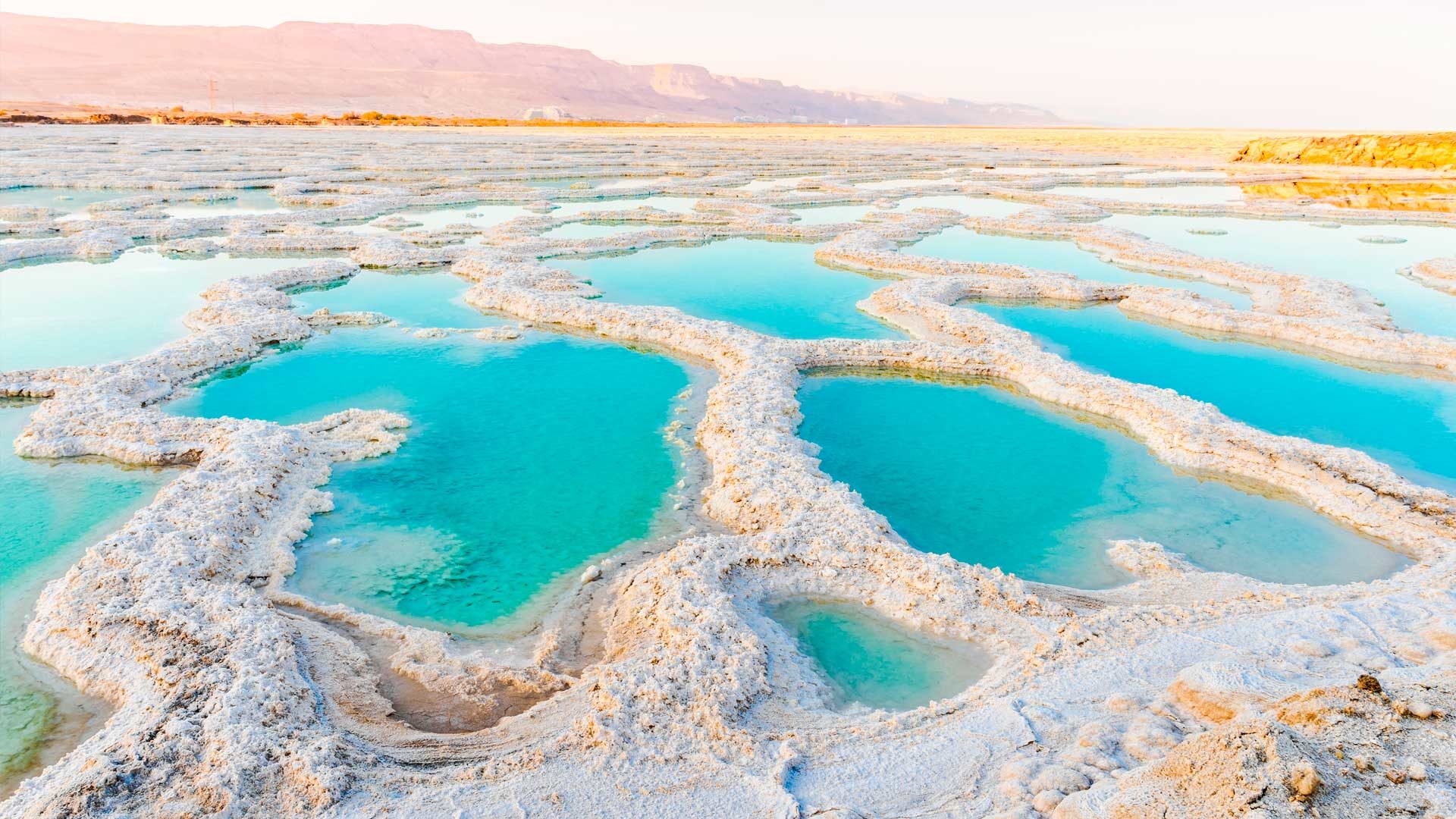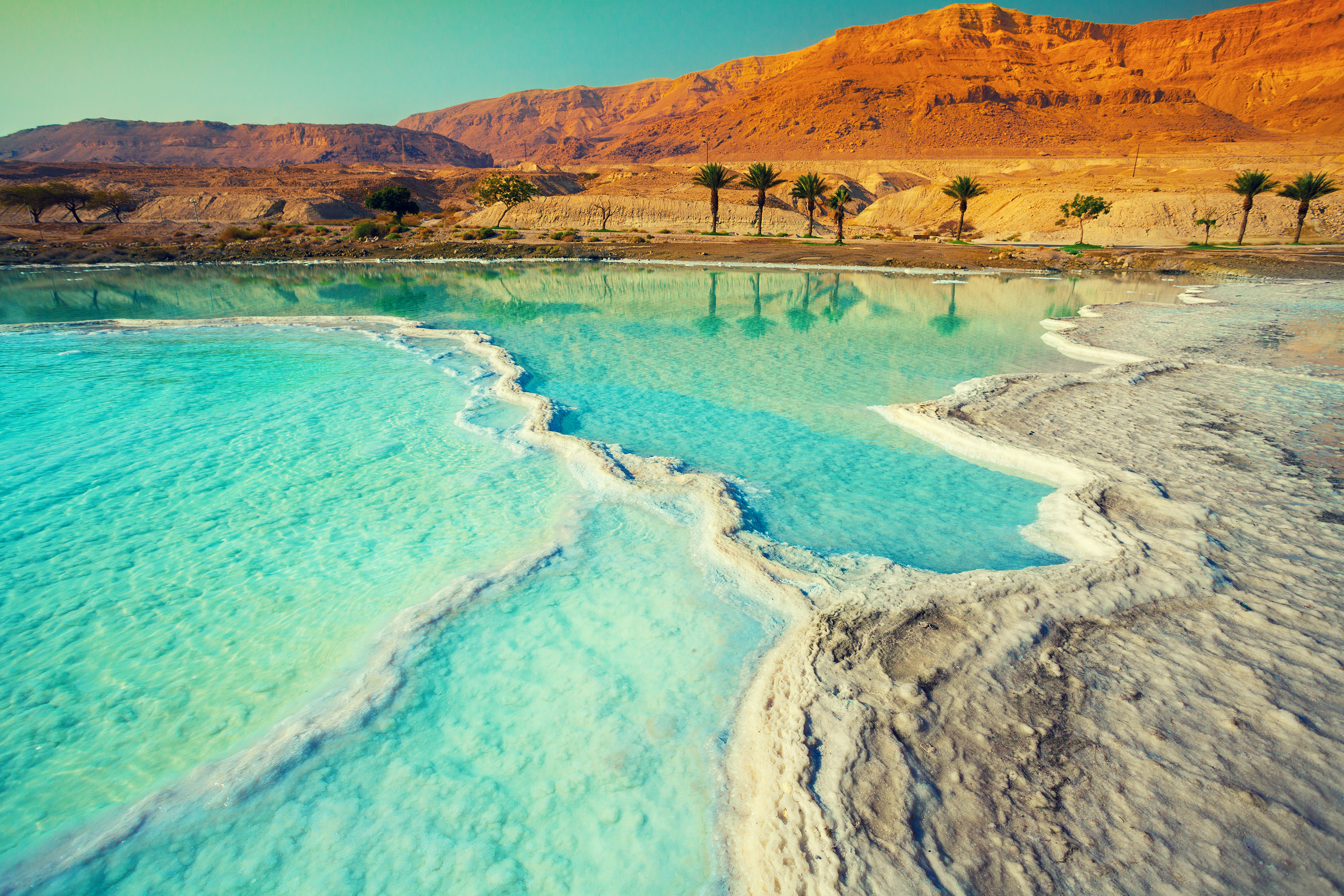



The Dead Sea, also known by other names, is a landlocked salt lake bordered by Jordan to the east, the Israeli-occupied West Bank to the west and Israel to the southwest. It lies in the endorheic basin of the Jordan Rift Valley, and its main tributary is the Jordan River. Wikipedia
Spring (March–May) and Autumn (September–November) are ideal — warm but not too hot (22–32°C), perfect for swimming and sunbathing.
Summer (June–August) is extremely hot (up to 45°C), but manageable if you're staying in a resort.
Winter (December–February) is mild (15–20°C), though cooler nights may not suit swimming.
From Amman:
~1 hour by car (approx. 50 km) via the Dead Sea Highway
Taxis or hotel-arranged transfers are the easiest option
From Petra:
~3 hours by car
From Queen Alia International Airport:
~45–60 minutes depen
Floating in the Dead Sea – The dense saltwater keeps you effortlessly afloat
Mud baths – Rich in minerals; spread mud on your skin for a detoxifying natural treatment
Amman Beach – Public beach with changing rooms and showers
Luxury resort beaches – Clean, private access with towels, pools, spas
Dead Sea Panoramic Complex – Small museum and café with epic views of the sea
Baptism Site of Jesus (Bethany Beyond the Jordan) – Significant religious and historical site nearby
Ma'in Hot Springs – A nearby natural spa resort with thermal waterfalls and pools
Wadi Mujib – A dramatic canyon nearby for hiking, swimming, and canyoning (seasonal)
Float and relax – One of the few places where doing nothing is the main event
Spa treatments – At most resorts or day spas, using salt, mud, and mineral oils
Hiking and canyoning – Wadi Mujib offers a spectacular mix of adventure and nature (April–October)
Sunsets over the water – Beautiful and peaceful, especially with a drink or from a hilltop
Most accommodations are resorts along the northern Dead Sea shoreline, offering private beaches, spas, and pools:
Luxury: 5-star hotels with full-service spas, fine dining, and pools
Mid-range: Comfortable resort-style hotels with direct beach access
Budget: Fewer options, but some guesthouses or nearby towns offer economical stays
Day passes are available at many resorts if you're not staying overnight
Resort restaurants: Offer buffets and à la carte menus with Jordanian, Mediterranean, and international cuisine
Local dishes to try:
Mansaf – Jordan’s national dish
Magloubeh – Upside-down rice and meat
Fresh mezze – Hummus, baba ghanoush, tabbouleh, and falafel
Poolside cafes and bars often serve light meals and drinks
Outside resorts, dining options are limited — most people eat at their hotel
The Dead Sea region is more resort-oriented and relaxed than other parts of Jordan, but:
Modest swimwear (especially on public beaches) is still appreciated
Always rinse off after floating — the salt is intense and can irritate skin or eyes
Local guides often offer cultural and historical context for nearby attractions like Bethany
Do not shave a day before visiting — the saltwater will sting
Wear water shoes – The salt crystals on the shore can be sharp
Don’t put your face in the water – It burns your eyes
Rinse off immediately after floating – Use resort showers or outdoor taps
Apply sunscreen generously – Even in cooler weather, the UV is intense
Hydrate well – It’s a very dry climate